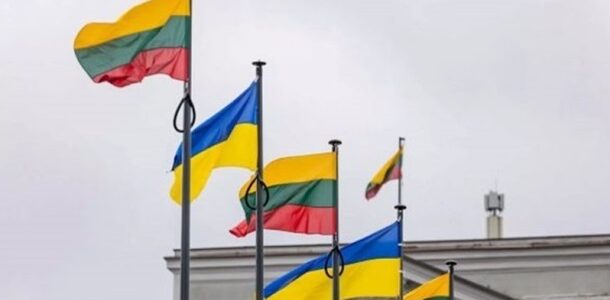
The production of Ukrainian weapons will be organized in Lithuania, according to an agreement reached at a meeting between the defense ministers of the two countries, the Lithuanian Defense Ministry’s press service reported on Tuesday.
“During the meeting between Lithuanian Minister of National Defense Dovilė Šakalenė and Ukrainian Minister of Defense Denys Shmyhal, a bilateral Protocol of Intent on the production of Ukrainian weapons in Lithuania was signed, and the types of weapons to be produced and further steps were discussed,” the ministry said in a statement on its website.
It is noted that the document “provides for joint production of defense industry products, technology transfer, project development, and localization of production in Lithuania.”
“This will pave the way for long-term partnership, strengthening collective European security, and creating sustainable supply chains,” the Lithuanian Ministry of Defense said.
According to Šakalėnė, Lithuania remains firmly committed to further supporting Ukraine. According to the minister, “in the coming years, it is planned to allocate more than EUR 200 million to support Ukraine for projects related to armaments, anti-drone systems, demining, rehabilitation, training, and support for Ukraine’s defense industry.” The Lithuanian Defense Minister also announced in Kyiv that Lithuania intends to contribute up to EUR 30 million to the PURL (Prioritized Ukraine Requirements List) initiative.
The minister also met with the leadership of the Ukrainian Air Force and air defense experts to discuss emerging challenges, lessons learned, and innovations in the field of air defense.
“We discussed Ukraine’s latest decisions in response to the changing situation with air threats and technological innovations. I want to ensure the most effective cooperation possible in strengthening our air defense and responding to the changing technologies and methods used by Russia. We agreed to hold regular expert consultations on the application of practical experience to strengthen our air defense,” Shakalene said.
According to her, “it is extremely important to strengthen airspace surveillance in order to detect Russian drones heading for Belarus as early as possible, which may subsequently violate Lithuanian airspace. To this end, it was agreed to exchange information between representatives of our air forces.”